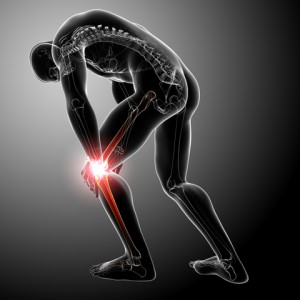Psychological Interventions for OA

The mainstay psychological intervention for OA is cognitive-behavioural therapy. This usually consists of three phases
- An education segment in which patients are taught about the biopsychosocial model of pain.
- A skills training segment in which patients are trained in a variety of cognitive-behavioural coping skills such as relaxation training, activity pacing, pleasant activity scheduling, imagery techniques, distraction strategies, cognitive restructuring, problem solving and goal setting.
- An application phase in which patients practice and apply their newly acquired skills in real life situations.
Other types of treatment include
- Emotional disclosure
- Hypnosis
- Psychodynamic interventions
- Acceptance and commitment therapy.
A meta-analysis (Dixon et al 2007) reviewed 27 randomised controlled trials which pooled together different psychosocial interventions, without separating cognitive behavioural therapy which constituted 70% of the interventions for patients with both hip and knee pain. The results for improving pain and improving function after 2-12 months had NNT’s of 10 and 12 respectively.

